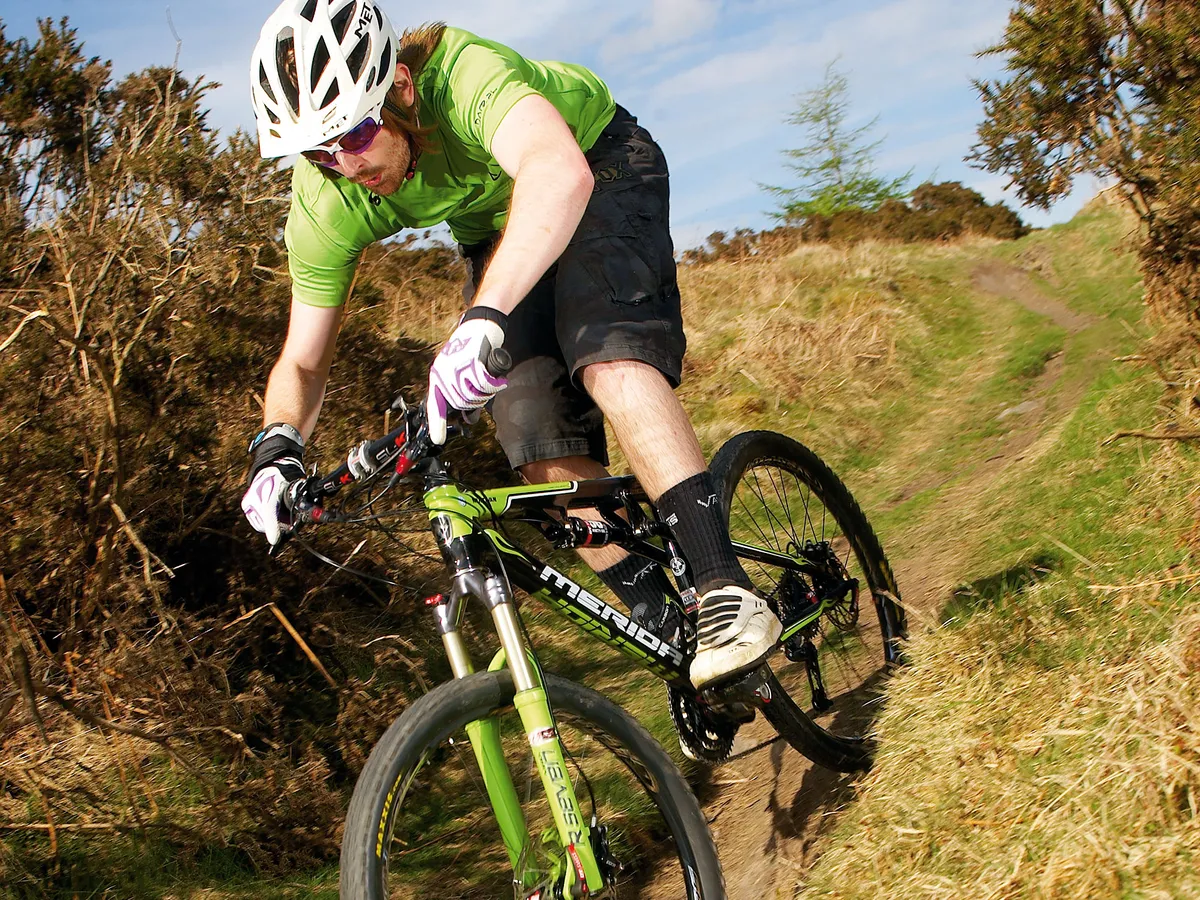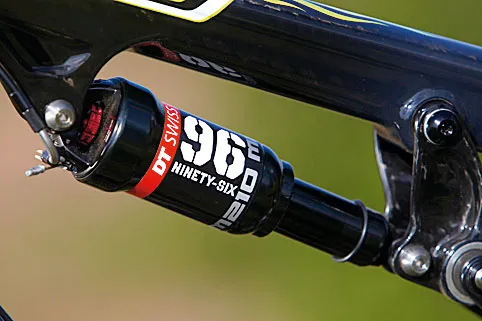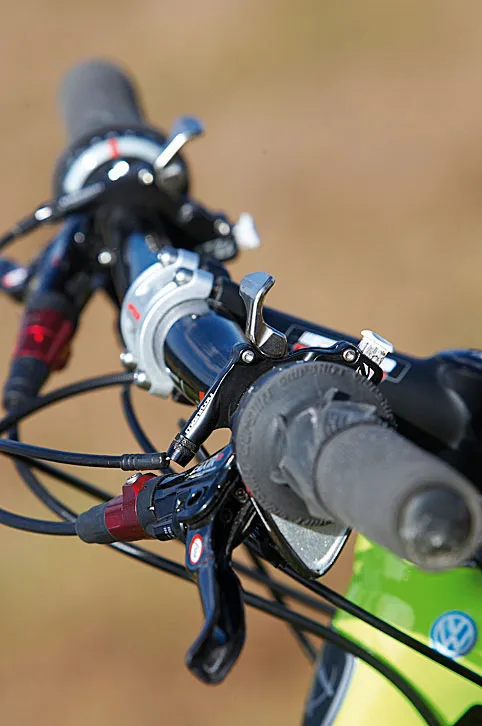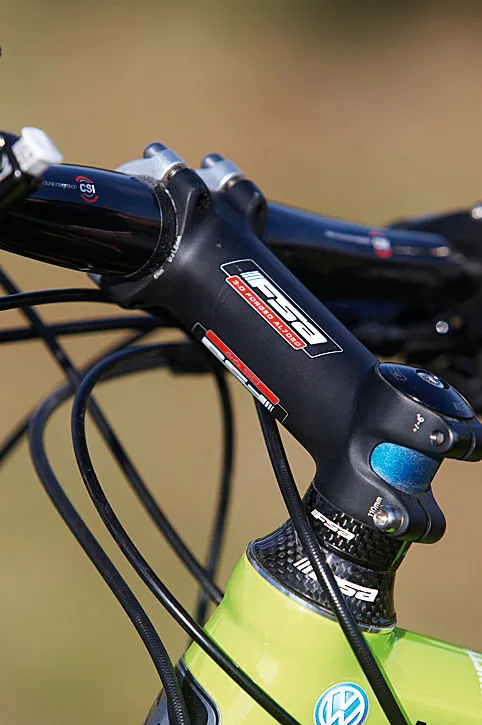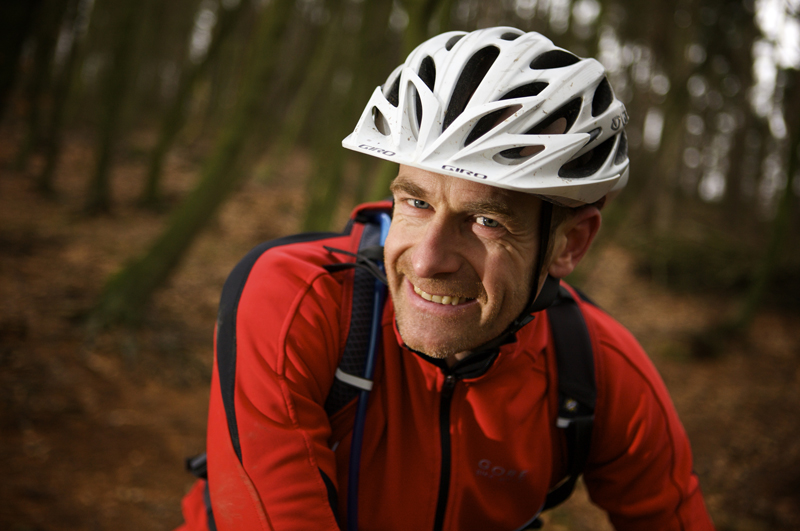Merida’s Ninety-Six project was designed to put both their World Cup cross-country race team and their bike design skills at the top of the tree. While it’s no relaxed and easy option, it’s far more fun than you’d expect from such a light, race-honed ride.
Ride & handling: A real racing thoroughbred
As soon as you hit the singletrack, there’s no doubting the front end of this bike is a pure race set-up. While the stroke is pretty smooth, the narrow stance of the R7 fork is easy to tie in knots in hard brake-and-turn or step situations. The long stem and narrow bar make it prone to stumbling under pressure too and the very compact frame puts a lot of your weight forwards. But if you can avoid going over the bars long enough to tame it, the Ninety-Six is brilliant high velocity fun.
Merida were very keen to emphasis just how stiff – as well as light – the Ninety-Six is when they handed it over, and they’re not joking. As soon as you press on the pedals you can feel the solidity of the deep section chainstays and oversized BB30 crank axle levering the super light wheels into life.
Although the fork feels noodly, there’s no shortage of mainframe stiffness to let you bring shoulders into action too, and you’ll be using that big ring far more than you used to. What also surprised us was how much time the Ninety-Six spent off the ground. The compact size makes it great to whip and hip, and its sub-10kg (22lb) weight made launching it effortlessy addictive, and flight times surprisingly long.
While it only has 96mm (3.8in) of travel, the DT shock operates at a really low 2:1 leverage ratio, which gives it a very smooth and succulent feel. The resulting rear control and ground connection would genuinely shame a lot of 120mm (4.7in) travel bikes, let alone 100mm ones. As you’d expect, it climbs like a dream too, with the steep angles and long stem keeping it locked on line rather than wandering all over the place. The only occasional glitch to wringing its neck through twisty singletrack are mis-shifts from the Gripshift, but it always muscled its way out of stall situations.
Having been so impressed with the trail presence of the Team, we are also really keen to try the alloy models, albeit in a longer stretch size that would increase stability in more technical moments.
Frame & equipment: lightweight and seriously stiff
At 1,760g, the Ninety-Six frame is one of the lightest full sussers available, but Merida have worked hard to keep it seriously stiff too. It’s not compatible with tapered forks, but Merida say the egghead head tube gives the frame – if not fork – similar stiffness advantages.
The double chamber main tubes use an extra internal wall and external shaping to minimise tube distortion, and the head and main tubes are made separately to the seat tube and bottom bracket for maximum quality control, before being sleeve-jointed at the bottom and wrapped at the top.
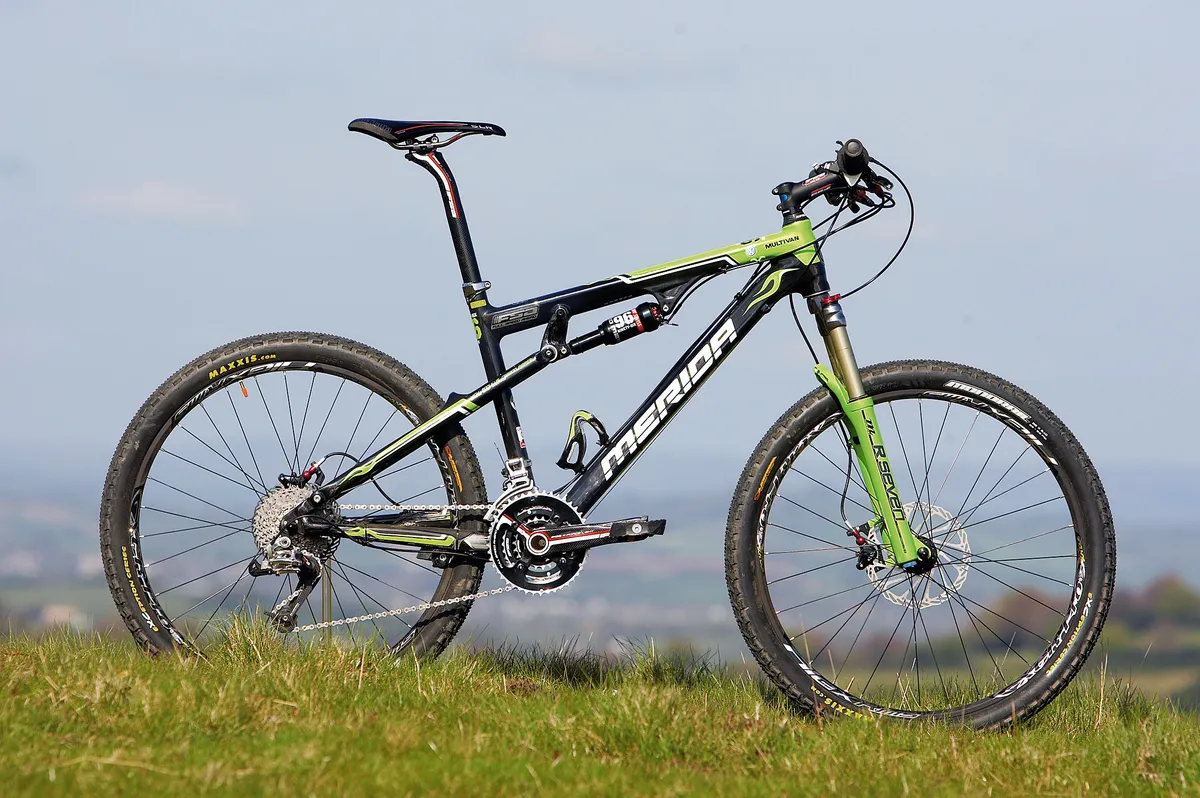
Merida also use nano particle enriched resin to maximise the strength of the carbon sheets. The oversized BB30 bottom bracket matches the deep chainstays and carbon driveside dropout for brutal stiffness. The carbon linkage plates have oversized bearings and titanium bolts to complete the circuit.
Although the mud clearance isn’t huge – 2.25in tyres will be a bit of a squeeze – the cable routing is tidy, with double clips on the top tube and chainstay, and combined brake, gear and bolt mounts for the colour-coordinated carbon bottle cage.
The colour coordination extends to the weight watcher’s favourite Manitou R7 fork, which comes with a remote MILO lockout to match the DT Swiss rear shock. The Ninety-Six also has a standard alloy rather than carbon bodied shock for more consistent results and more realistic cost.
The 2009 DT Swiss carbon rims are also swapped for the more affordable but still remarkably light (sub-300g) Alex Scandium rims. Twist rather than trigger shifters on the flat bar, a semi titanium XTR cassette and a Selle Italia carbon saddle also keep weight to a minimum.
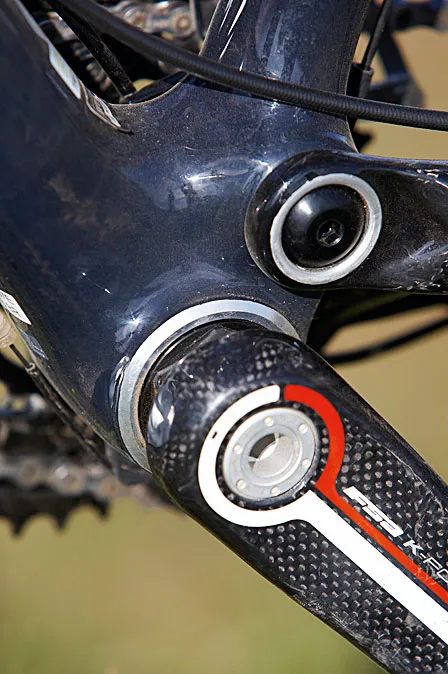
FSA K-Force BB30 cranks are more about maximum stiffness and gearing range though. The 185mm front brake rotor upgrade means it stops as hard as it goes. It’s worth noting that the cheaper XT spec carbon 3000-D bike (£3269.56) and the alloy Ninety-Six bikes (£2298 and £1788 respectively) also get a riser bar and shorter stem for a more trail-friendly feel.
